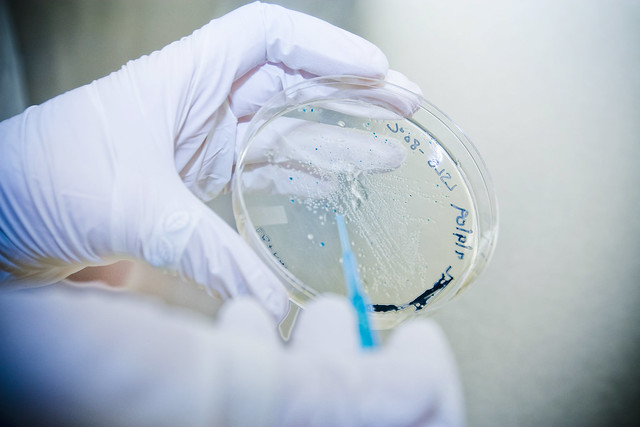
Sponsor :
Sarcoma Oncology Research Center, .
*****************************************
Summary
This is an open label, dose-seeking phase 1/2 study using escalating doses of TRABECTEDIN given intravenously with defined doses of IPILIMUMAB and NIVOLUMAB based on preliminary results of the Checkmate 012 trial for NSCLC (Hellman et al., 2016). For the Phase 1 Part of Study, only previously treated patients will be enrolled. For the Phase 2 Part of Study, previously untreated patients will be enrolled.
Description
I. Dose Escalation Phase 1 of Study: The study will employ the standard "Cohort of Three" design (Storer, 1989). Three patients are treated at each dose level with expansion to six patients per cohort if DLT is observed in one of the three initially-enrolled patients at each dose level. If no DLT occurs after 2 doses, escalation to the next dose level will be permitted. The maximum tolerated dose is defined as the highest safely tolerated dose, where not more than one patient experienced DLT, with the next higher dose level having at least two patients who experienced DLT. Patients in the dose escalation study may continue treatment at their designated dose levels until disease progression or unacceptable toxicity occurs or up to 9 six-week cycles (one year) of therapy (up 18 TRABECTEDIN doses). No intra-patient dose escalation will take place.
Dose of IPILIMUMAB: 1 mg/kg IV over 30 min. q 12 weeks, beginning 2 weeks after first dose of TRABECTEDIN, until disease progression or unacceptable toxicity, up to 5 doses
Dose of NIVOLUMAB: 3 mg/kg over 30 min. q 2 weeks, beginning 2 weeks after first dose of TRABECTEDIN, until disease progression or unacceptable toxicity, up to 26 doses
Dose of TRABECTEDIN: Escalating doses of TRABECTEDIN IV as continuous intravenous infusion (CIV) over 24 hrs) q 3 weeks:
Dose Level I:
1 mg/m2 (n = 3-6); Dose Level II: 1.2 mg/m2 (n=3-6); Dose Level III: 1.5 mg.m2 (n=3-6)
II. Expansion Phase 2 of Study:
Following dose escalation, an additional 22-28 previously untreated patients will receive TRABECTEDIN at the MTD and defined doses of IPILIMUMAB and NIVOLUMAB to assess overall safety and potential efficacy in a greater number of patients. Patients in the expansion phase of the study may continue treatment until significant disease progression (see criteria for discontinuation of therapy) or unacceptable toxicity occurs up to 9 six-week cycles (one year) of therapy.
Surgical Resection:
After one or more treatment cycles, the principal investigator may recommend surgical debulking, complete surgical removal or a biopsy. If residual disease is present either by histopathological examination or by CT scan/MRI, repeat treatment cycles may be given 4 weeks after surgery, if the surgical incision has healed, and if the patient has < grade I toxicity. Resected or biopsied tumors will be analyzed for the effects of this triple therapy on response, and immune cell trafficking in the tumor microenvironment. Fresh and paraffin embedded tissue blocks will be analyzed by FACS for PD-L1 and other biomarkers, including Tregs, CD8+, CD4+ cells etc. Immunohistochemistry for cyclin G1, cyclin D1 and Ki67 will be conducted to determine the tumor's proliferative state. Histopathologic examination for tumor necrosis and mitotic index will also be determined.
Study Design
Conditions Advanced Soft Tissue Sarcoma .
Intervention Trabectedin, Ipilimumab, Nivolumab.
Location Sarcoma Oncology Research Center Santa Monica California United States 90403.
Status Active, not recruiting
Source Sarcoma Oncology Research Center, LLC
***************************************
Farmacos que Intervienen en el Ensayo :
 Ipilimumab ( Yervoy ) es un Anticuerpo Monoclonal (IgG1κ) anti-CTLA-4 completamente humano, producido en células de ovario de hámster chino mediante tecnología de ADN recombinante.
Ipilimumab ( Yervoy ) es un Anticuerpo Monoclonal (IgG1κ) anti-CTLA-4 completamente humano, producido en células de ovario de hámster chino mediante tecnología de ADN recombinante.YERVOY está indicado para el tratamiento del melanoma avanzado (irresecable o metastásico) en adultos.
****************

Yondelis además de inducir la muerte de las células tumorales, actúa deplecionando los macrófagos asociados al tumor. Estas células, que normalmente forman parte del sistema inmunológico, tienen en el tumor una actividad protumoral ya que liberan una serie de factores que estimulan la división de las células tumorales así como la formación de neovasos.
Al inducir la muerte de éstas células, 'Yondelis' inhibe esta actividad protumoral y disminuye la secreción de los factores estimulantes del crecimiento tumoral. Este mecanismo de acción es particular a 'Yondelis' y no se observa con ninguna de los otros agentes antitumorales estudiados .
*****************
 Nivolumab ( Opdivo ) se produce en células de ovario de hámster chino mediante tecnología de ADN recombinante.
Nivolumab ( Opdivo ) se produce en células de ovario de hámster chino mediante tecnología de ADN recombinante.Indicaciones :
Melanoma:
OPDIVO en monoterapia o en combinación con ipilimumab está indicado para el tratamiento del melanoma avanzado (irresecable o metastásico) en adultos.
En comparación con nivolumab en monoterapia se ha establecido un aumento de la supervivencia libre de progresión (SLP) para la combinación de nivolumab con ipilimumab, solamente en los pacientes con baja expresión de PD-L1 en el tumor (ver las secciones 4.4 y 5.1).
Cáncer de Pulmón No Microcítico (CPNM) :
OPDIVO está indicado para el tratamiento del cáncer de pulmón no microcítico (CPNM), localmente avanzado o metastásico después de quimioterapia previa, en adultos.
Carcinoma de Células Renales (CCR) :
OPDIVO en monoterapia está indicado para el tratamiento del carcinoma de células renales avanzado después de tratamiento previo, en adultos.
Linfoma de Hodgkin clásico (LHc) :
OPDIVO está indicado para el tratamiento de pacientes adultos con linfoma de Hodgkin clásico (LHc) en recaída o refractario después de un trasplante .